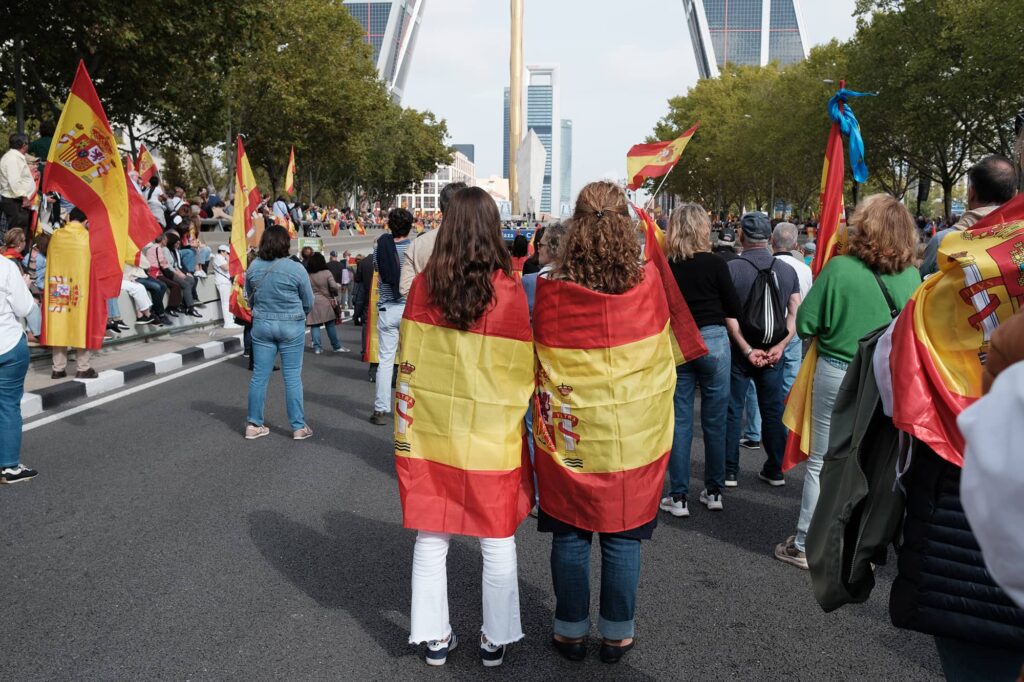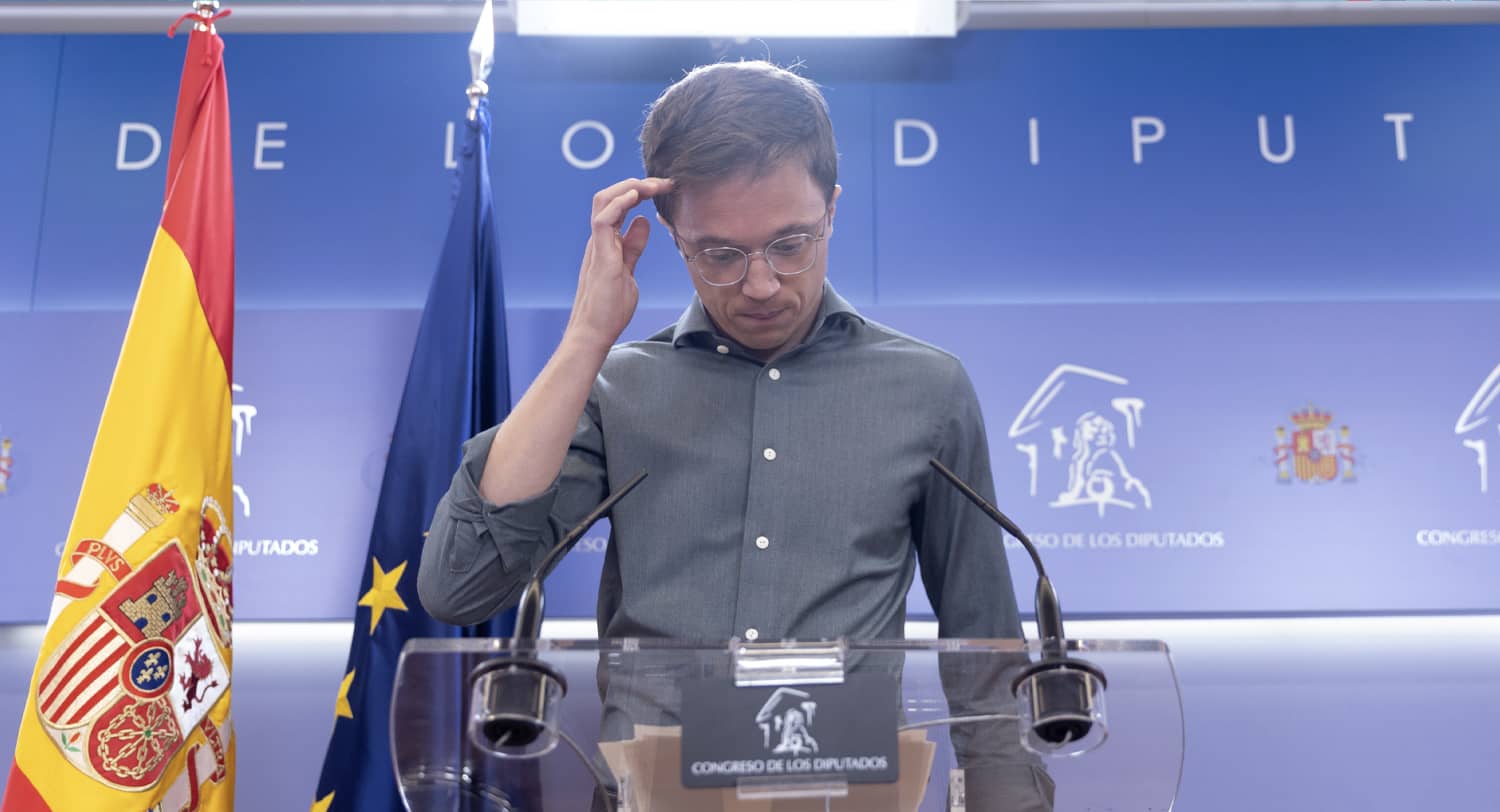In late October Spanish political life was rocked by the resignation of Iñigo Errejón, a member of parliament and key figure in the current governing coalition, following accusations of sexual misconduct. Errejón led efforts to build a new force on the left, most recently as the spokesman for Sumar (“Join”), a grouping of national and regional parties.
Sumar and its predecessor movement Podemos (“We Can”) had hoped to supplant both the center-left social democrats of Prime Minister Pedro Sánchez and the old-school Communist Party of Spain. Instead Sumar ended up joining Sánchez’ governing coalition. But the story of Errejón provides a window into the political and intellectual world of the “post-Marxist” left in Europe and Latin America.
Political parties embracing this post-Marxist approach can be found in countries ranging from Greece and France to Colombia and Chile. They arose from the 2011 protests against the austerity policies implemented in Europe after the 2008 financial crisis and took inspiration from the anti-globalization, Occupy Wall Street, and Antifa movements in the United States.
Errejón helped translate these protest sentiments into practical politics in Spain. His approach grew from “left populism” practiced by the “pink tide” of governments which came to power in Latin America at the end of the 1990s and from the “identity politics” agenda that includes feminism, LGBTQ and indigenous peoples’ rights, eco-politics, and other issues.
Seeking a New Left Politics in Spain
Errejón at 40 years old retains the youthful yet scholarly mien of the graduate student in political science that he once was. His doctoral thesis was entitled “The Struggle for Hegemony during the First Government of MAS in Bolivia, 2006-2009” (MAS, the Movement towards Socialism, is the political party founded by Evo Morales, the leader of coca farmers who became Bolivian president.)
Galvanized by Spain’s protesters of 2011 known as the “indignados” (the outraged ones), Errejón, together with Pablo Iglesias, a fellow political scientist and media personality, founded a think tank, the Center for Political and Social Studies (CEPS), to explore the opportunities for a new kind of leftist politics. In 2014, they launched Podemos, with Iglesias, a charismatic speaker, as its leader and Errejón in charge of organization and policy.
Podemos became Spain’s third largest political force in the 2015 and 2016 elections and joined the Socialist-led government. Although it subsequently lost seats in the 2019 elections, Iglesias served as Deputy Prime Minister. But, never comfortable with coalition politics, he resigned to embark on a failed effort in 2021 to head the Madrid regional government.
Errejón broke with Podemos, finding Iglesias’ top-down leadership style unpalatable. In 2019, he moved to a new leftist local party called Mas Madrid (“More Madrid”), later Mas Pais (“More Country”) and became a councilman in Madrid’s regional government. This new party in 2023 became part of Sumar, the new grouping of leftist national and regional parties, and Errejón became its spokesman.
Errejón was caught up in a scandal when he was accused of repeatedly sexually harassing an actress and television presenter; other such accusations against him surfaced in the media. He admitted to “mistakes” resulting from a “toxic subjectivity” created by the “patriarchy” and resigned his seat in parliament.
Errejón’s departure does not immediately threaten the survival of Sánchez’ government. Sumar remains in the government along with a number of regional parties (including independence-minded Catalan nationalists.) But this scandal further dampens the prospects of the new version of leftist politics that Errejón champions.

The Post-Marxist Theory
What is this “post-Marxist” thinking that the now discredited Errejón had such a major role in converting into real world politics? His lodestone was the late Ernesto Laclau, an Argentine political theorist considered one of the fathers of post-Marxism.
Laclau’s own thinking derives from that of Antonio Gramsci, a founder of the Italian Communist Party, who challenged the Communist orthodoxy that defined power relations entirely in terms of the competing economic interests of the proletariat and the bourgeoisie, with political ideology merely being merely a “superstructure” dependent on underlying economic fundamentals. Gramsci argued that the ruling classes were able to dominate their societies not merely through economic power but also because of their cultural “hegemony” which must be challenged by those seeking fundamental change.
Laclau took Gramsci’s thinking further. Instead of relying largely on the working class and its traditional political parties, says Laclau, those seeking change could find an alternative in “left populism.” Laclau saw radical possibilities in the career of his fellow Argentine, Juan Perón, who achieved and maintained power through his charismatic personality, resort to nationalist appeals, construction of a massive welfare state, and sponsorship of a powerful, politically beholden union movement. Laclau in his later years approved of Argentine Presidents Nestor and Cristina Kirchner whose free-spending, statist version of Peronism and reliance on politicized community organizations was seen as a return to the movement’s essence after the conservative deviation of Carlos Menem, who made efforts at privatization and fiscal restraint.
Laclau’s views included favoring sustained internal conflict, with the goal of setting up a dichotomy between “the people” and “the interests.” He took some of his thinking from the right-wing (indeed Nazi Party member) German political theorist Carl Schmitt, who spoke of the need to always define political goals in terms of “the other” against whom one takes a position of constant opposition.
Such views were attractive to Errejón (who acknowledged Laclau’s influence in his thesis on Bolivian populism) and fellow young Spanish radicals, as the “indignados” took to the streets, protesting austerity and Spain’s post-Franco democratic model of competition between the center-left Socialists and the center-right Popular Party.
The Venezuelan Connection
Errejón also found inspiration in Hugo Chávez, who took office in Venezuela in 1999 and ruled the oil-rich South American state until his death in 2013.
Chávez was probably close to the perfect model of the “left populist” leader that they admired—charismatic, with a unique personal hold on the Venezuelan electorate, fiercely nationalist (and consistently opposed to the United States), eager to appropriate historic national symbols (he termed his movement “Bolivarian”), and determined to squeeze out Venezuela’s “squalid” upper and middle classes and use the country’s oil wealth to create “twenty-first century socialism.”
The connection between Errejón’s movement in Spain and the Chávez government was more than ideological. CEPS, the new left Spanish think tank, was paid 3.7 million euros over ten years in consulting fees by the Venezuelan government. As Venezuela slid further into authoritarian governance, Errejón continued to defend the regime, praising its “immense advances in transformations towards socialism.”

A Matter of Identity
If charismatic populism was seen as the path to power, another movement with some roots in neo- or post-Marxism provided much of Spanish new left political agenda – “identity politics” and the use of grievances of specific groups within society as a vehicle for the “people” to oppose the established “interests.” Latin American leftwing movements adopted this agenda, partly influenced by Spanish counterparts.
In Colombia, former guerrilla Gustavo Petro gained the presidency with a platform of gender equality, indigenous rights and above all environmentalism (to the point of banning further exploration for oil, the country’s top export).
Perhaps the Latin American country with the strongest connections to Spanish counterparts, from far right to far left, is Chile. In 2019 it underwent a prolonged series of protests (marked by considerable violence) known as the “social explosion,” which in many way paralleled the earlier protests of the “indignados” in Spain, leading to the election of Gabriel Boric, a young member of parliament who had been a radical student leader.
Boric’s political base had close ties with Spain’s Podemos (as Boric had personally with Errejón). Boric vigorously supported a constitutional convention, which was dominated by left-oriented civil society activists, and which produced a draft document of the identity agenda, including seats in Congress reserved for the indigenous, strict environmental protections, and recognition of animal rights. Ultimately the Chilean public roundly rejected the draft, as public concerns turned to issues of crime, illegal immigration, and the economy.
What’s Left of the New Left?
So where does this leave the post-Marxist left in Spain and elsewhere? Errejón himself has resigned his seat in parliament and left politics, at least for now. Sumar remains part of the government but, having done poorly in the last European election, its future is uncertain.
In Latin America, the left populist “pink wave” presidents have proven to be disappointments. Venezuela’s Bolivarian revolution has provoked an economic and social collapse. In Bolivia, Evo Morales, now out of power, is locked in internecine struggles within his own party. And the Kirchners’ variant of Peronism was rejected by Argentines in favor of the libertarian views of economist Javier Milei.
Milei embodies a rightwing populism. While his main concern is Argentina’s economy, he is also prepared to challenge the leftist identity agenda, for example by abolishing the country’s Ministry of Women, Genders and Diversity. And in Spain itself, the new hard right party Vox has carved out space advocating tougher immigration policies and resistance to the claims of Basque and Catalan minorities, while promoting a conservative Catholic stance on sexual mores.
Both in Spain and elsewhere in the West, the devotees of post-Marxist politics seem to embody a vision that the public is not buying. They may recover and regain support. Perhaps a new strategy would involve giving up their fantasies of a populist leader or a coalition of aggrieved minorities sweeping them to power, and concentrate on issues with broader resonance.
Such a drift has already been seen in other European leftist parties such as Greece’s Syriza and Germany’s Greens. But, of course, should they embark on such a course, Spain’s post-Marxists might then find that they are little different from the old-school social democrats whom they have sought to supplant.

